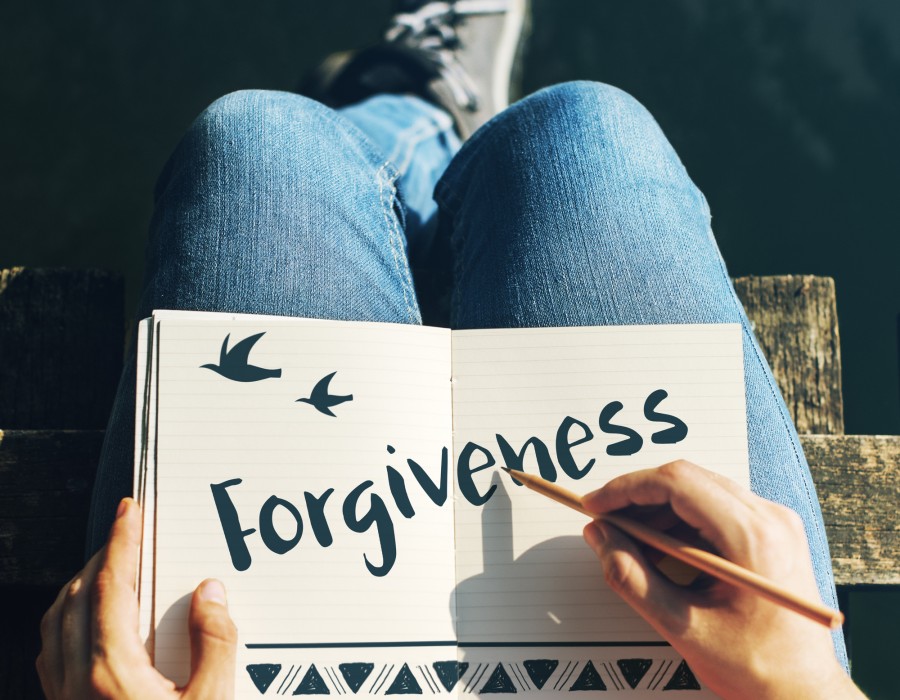It is inevitable in life that we will be treated badly by someone else. Some of these actions against us can be forgiven and we can move on from them, others can take us time to forgive, work through and understand, and some can seem unforgivable. Forgiving others can seem challenging; however what can be more difficult is to find the courage within our minds, hearts and souls to forgive ourselves. This article aims to look at why we find it so hard to forgive others, learning to forgive ourselves and the benefits of forgiving others. It also aims to discuss why forgiveness is good for mental health.
Why do we find it so hard to forgive others?
We may find it hard to forgive others because when we have been hurt our pride or self-esteem is injured, and our expectations of the other person or our dreams and ideas are lowered and we feel disappointed. We lose trust, which can be incredibly hard to regain and restore in others. The more we feel let down, the more difficult it is trust again.
As well as the practical reasons for forgiveness mentioned above, there are also automatic thought processes or beliefs which are initiated when we are hurt. These automatic processes can halter our ability to feel that we can forgive someone. We could tell ourselves that we can’t forgive a person because he or she never accepts responsibility, or that they won’t acknowledge how much they have hurt us. We also may feel that forgiving others makes us weak, or that the process of forgiveness means we are hypocritical because we do not feel like forgiving in the first place.
It can also be difficult to forgive others because our explanations of their behaviors can get in the way. We can often argue that a person’s actions are due to their personality or their character traits. We may tell ourselves that someone is just forgetful, careless or insensitive, or tell ourselves that they do not appreciate us, or that they did what they did on purpose. Our own difficulty with empathic responses or how we demonstrate understanding and care for those around us can also impact on how able we are to forgive.
Learning to forgive ourselves
Inherently, forgiving oneself is far more difficult than forgiving others. We can hold onto our resentments and anger and choose not to forgive because it can serve as a protection against being hurt in the future. We can become caught up in a web of anger and hurt, where we treat ourselves harshly and feel that we must be perfect or that we cannot make mistakes. However, we are human, and to be human is to make mistakes and learn from them.
So, how do we learn to forgive ourselves for the things we have done and for the things we have not? Well, self-forgiveness needs to be specific; it needs to be for something we have actually done, not for who or what we are. To forgive ourselves means accepting that there are things we cannot change as well as realizing that there is much that we can. The key here is to know when to stop berating yourself, make amends with the person you are and then tell yourself that you forgive yourself. It is also important to remember you choosing the path of internal peace, and removing the burden of heavy feelings which serve no purpose but to weigh you down in the long run.
The benefits of forgiving others
Responding to hate, anger or mistreatment with kindness, love and compassion is probably one of the most difficult things that can be asked of us, however being able to do so brings forth great results and personal gain. So, how do we go about being able to forgive others for what they have done? Below are a few tips to increase your ability to forgive others.
Realizing that the anger or resentment you have towards a person does them no harm whatsoever in the way that you would like.
Leading a happy and fulfilling life where you feel free of the burdens of anger is the best response to those who have hurt you most.
Being able to see the negative experience as one of positivity, and allowing yourself to find growth within a difficult time.
Be kind, compassionate and caring to yourself – give yourself time to grow, heal and develop.
Stop telling the story of how you were hurt from your perspective and imagine it from the perspective of the person who has hurt you.
Retrain your way of thinking – when the person who hurt you comes to mind, send them a positive thought instead of one of anger.
Moving forward – Why forgiveness is good for mental health
Forgiveness in essence, is letting go of the blame, shame and guilt that is associated with being hurt. It ultimately allows you to give yourself and the person you are forgiving space to grow, learn and develop. To consider how impactful forgiveness can be on the lives of others is empowering, and to give the gift of forgiveness can truly make a difference to someone’s life.
Without the ability to practice more forgiveness, we will struggle to find peace within our minds, find ourselves living with a troubled conscience and become lost in the past and dwelling on mistakes and moments we can no longer change. If we can learn to forgive, release our angers and resentments, we can truly allow ourselves to live deeper and richer lives where we are not burdened by hate, and can access more peace and calm within our hearts, our souls and our minds.
About the author
Joshua is an experienced Integrative Therapist who’s worked with clients to understand their past at a deep level, and has assisted them in being able to move on and to practice forgiveness for themselves and others. He also works with a wide range of issues such as loneliness, depression, stress and anxiety. He is based in Shoreditch, East London.
https://www.counselling-directory.org.uk/counsellor-articles/the-importance-of-forgiving-yourself-others
- Abuse & The Abuser
- Achievement
- Activity, Fitness & Sport
- Aging & Maturity
- Altruism & Kindness
- Atrocities, Racism & Inequality
- Challenges & Pitfalls
- Choices & Decisions
- Communication Skills
- Crime & Punishment
- Dangerous Situations
- Dealing with Addictions
- Debatable Issues & Moral Questions
- Determination & Achievement
- Diet & Nutrition
- Employment & Career
- Ethical dilemmas
- Experience & Adventure
- Faith, Something to Believe in
- Fears & Phobias
- Friends & Acquaintances
- Habits. Good & Bad
- Honour & Respect
- Human Nature
- Image & Uniqueness
- Immediate Family Relations
- Influence & Negotiation
- Interdependence & Independence
- Life's Big Questions
- Love, Dating & Marriage
- Manners & Etiquette
- Money & Finances
- Moods & Emotions
- Other Beneficial Approaches
- Other Relationships
- Overall health
- Passions & Strengths
- Peace & Forgiveness
- Personal Change
- Personal Development
- Politics & Governance
- Positive & Negative Attitudes
- Rights & Freedom
- Self Harm & Self Sabotage
- Sexual Preferences
- Sexual Relations
- Sins
- Thanks & Gratitude
- The Legacy We Leave
- The Search for Happiness
- Time. Past, present & Future
- Today's World, Projecting Tomorrow
- Truth & Character
- Unattractive Qualities
- Wisdom & Knowledge






Comments